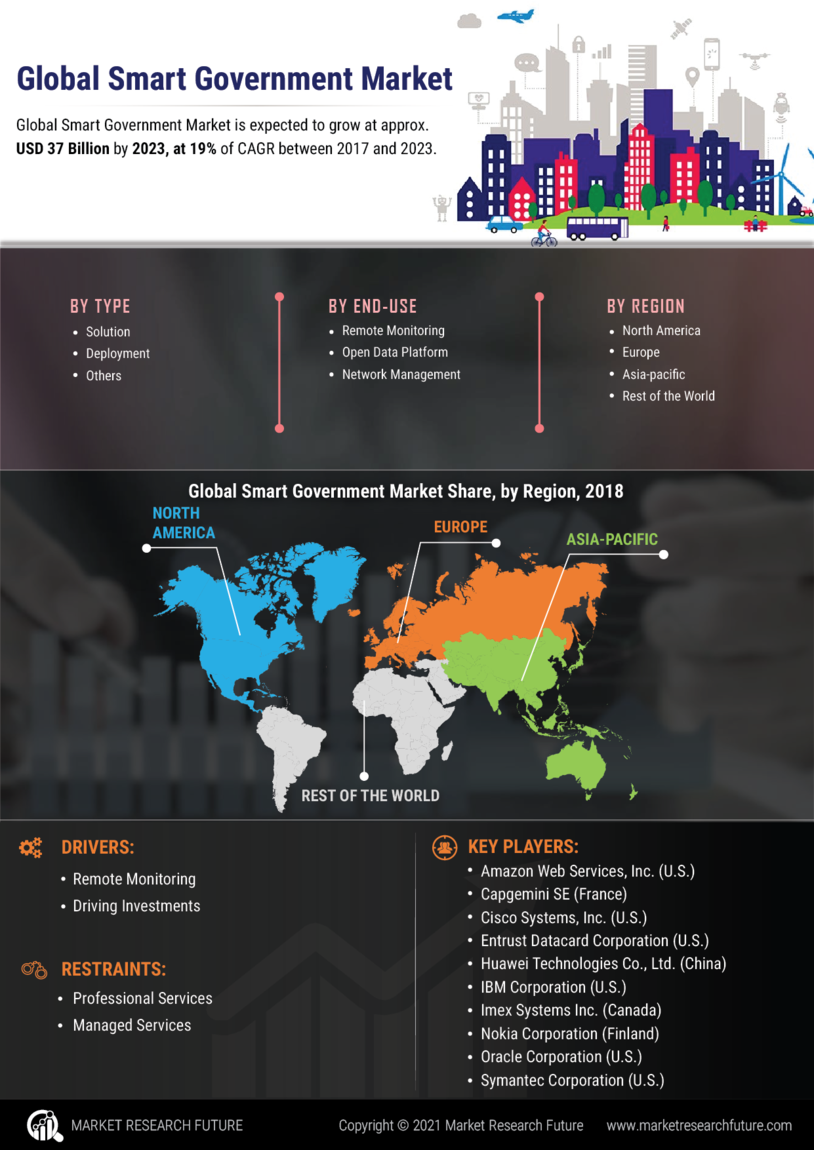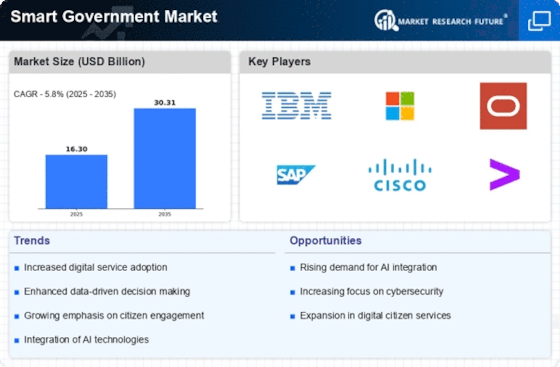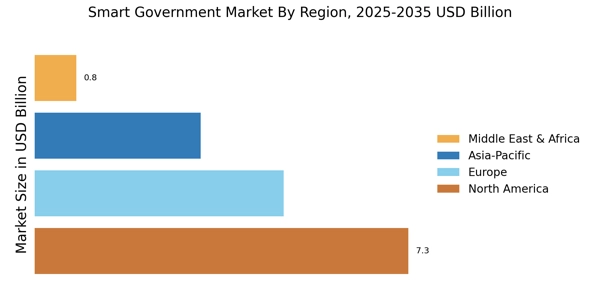Integration of Advanced Technologies
The integration of advanced technologies such as artificial intelligence, machine learning, and the Internet of Things is a pivotal driver in the Smart Government Market. These technologies facilitate enhanced data collection and analysis, enabling governments to make informed decisions. For instance, AI-driven analytics can optimize resource allocation, while IoT devices can improve public service delivery. The Smart Government Market is projected to witness a compound annual growth rate of approximately 20% over the next five years, driven by the increasing adoption of these technologies. As governments strive to enhance operational efficiency and citizen engagement, the integration of advanced technologies becomes essential.
Rise of Citizen Engagement Platforms
The rise of citizen engagement platforms is transforming the Smart Government Market. These platforms enable governments to interact with citizens more effectively, fostering a two-way communication channel. By utilizing social media, mobile applications, and online forums, governments can gather feedback and address public concerns in real-time. This trend is supported by data indicating that over 60% of citizens prefer to engage with their governments through digital channels. As a result, the Smart Government Market is witnessing increased investments in technologies that enhance citizen participation and collaboration.
Focus on Sustainable Development Goals
The emphasis on sustainable development goals (SDGs) is shaping the Smart Government Market. Governments are increasingly aligning their policies and initiatives with the SDGs to address pressing global challenges such as climate change, poverty, and inequality. This alignment necessitates the adoption of smart technologies that can monitor and report on progress towards these goals. For example, smart city initiatives that utilize data analytics can help track environmental impacts and resource usage. As a result, the Smart Government Market is likely to expand as governments seek innovative solutions to achieve sustainability targets.
Regulatory Compliance and Security Concerns
Regulatory compliance and security concerns are critical drivers in the Smart Government Market. As governments adopt digital solutions, they must navigate complex regulatory frameworks and ensure the protection of sensitive data. The increasing frequency of cyber threats has heightened the focus on cybersecurity measures. Governments are investing in secure platforms and technologies to safeguard citizen information and maintain compliance with regulations. This focus on security is expected to drive growth in the Smart Government Market, as agencies seek to implement robust security protocols while enhancing service delivery.
Increased Demand for Transparency and Accountability
There is a growing demand for transparency and accountability in government operations, which serves as a significant driver in the Smart Government Market. Citizens are increasingly expecting access to information regarding government activities and expenditures. This trend has led to the implementation of open data initiatives and e-governance platforms that promote transparency. According to recent studies, over 70% of citizens believe that transparency in government can lead to improved public trust. Consequently, the Smart Government Market is evolving to meet these expectations, with governments investing in technologies that enhance visibility and accountability.

















